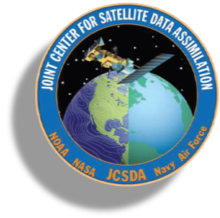2024 was a big year for JCSDA with the launch of our space weather data assimilation project, several spack-stack releases that now support 14 HPC platforms and AWS cloud services, and the conclusion of JCSDA’s Disaster Relief Appropriations Supplemental (DRAS) project with exceptional success. Our most notable highlights included:
Launching a groundbreaking space weather data assimilation project during a collaborative workshop with academia, industry, and partner agencies, including NASA, NOAA, the Naval Research Lab, the Air Force Research Lab, University of Colorado, and COSMIC.
Making substantial progress on the R2D2 data store, featuring a new client-server architecture and the implementation of an industry-standard HTTP REST API.
Releasing spack-stack 1.8.0, in partnership with NOAA EMC and EPIC, a robust software build environment that now supports 14 HPC platforms and AWS cloud services.
Improving our SkyLab testbed to ingest the latest observations as they arrive, advancing the goal of continuous data assimilation.
Leading a successful cross-organization code sprint to implement standardized model variable names in JEDI, furthering interoperability and usability.
Adding radar and lightning observation operators were added to the Unified Forward Operator.
Achieving the capability to perform 2DVar data assimilation for snow depth analysis, a critical advancement.
Concluding the Disaster Relief Appropriations Supplemental (DRAS) project, an exceptional accomplishment. This NOAA-funded initiative focused on accelerating JEDI development for operational production, improving Research to Operations (R2O) and O2R pipelines, and advancing tools for use of observations, all of which were accomplished.
Keep an eye out for even more impressive progress in 2025!

